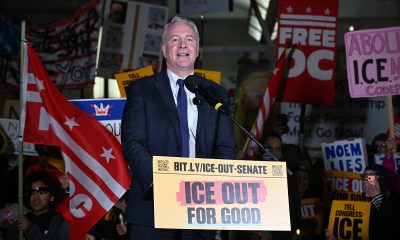Arts & Entertainment
Five decades of progress since Stonewall
20 events that shaped the LGBTQ movement
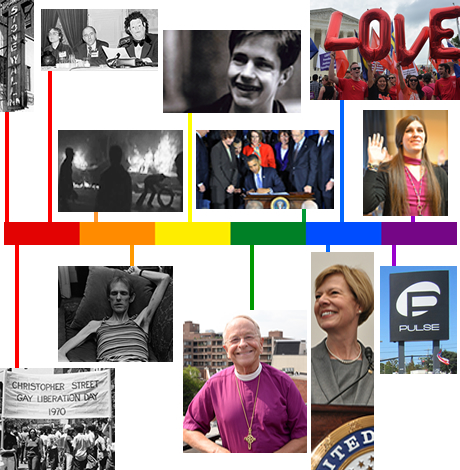
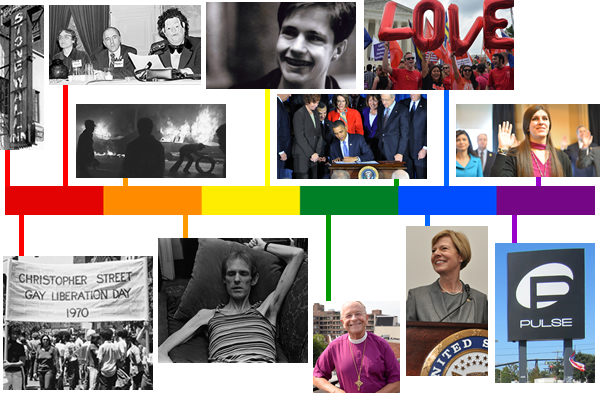
This month marks the 50th anniversary of the Stonewall riots, which are credited with launching the modern LGBTQ rights movement. Since that time, the country has seen tremendous progress in LGBTQ equality and acceptance. Here is a list of 20 events that have shaped the LGBT rights movement over the last 50 years.
June 28, 1970:
Upwards of 2,000 people took part in New York’s Christopher Street Liberation Day that commemorated the first anniversary of the Stonewall riots. This march is seen by many as one of the first Pride events.
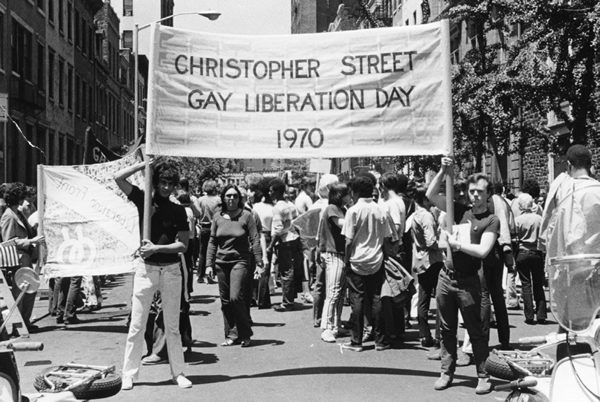
Dec. 15, 1973:
The American Psychological Association declassified homosexuality as a mental illness.

June 8, 1977:
Voters in Dade County, Fla., repealed a gay rights ordinance the Dade County Commission approved earlier in the year.
Anita Bryant’s campaign against the ordinance ahead of the referendum prompted outrage among LGBT activists across the country and a boycott of Florida orange juice. The Miami-Dade County Commission in 1998 approved a ban on discrimination based on sexual orientation.
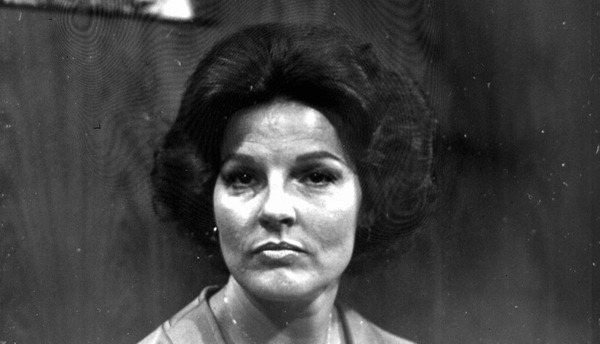
Nov. 27, 1978:
San Francisco Supervisor Dan White assassinated City Supervisor Harvey Milk and Mayor George Moscone inside San Francisco City Hall.
The assassination of Milk, a pioneering activist who was the first openly gay man elected in California, sparked an outpouring of grief that included a candlelight vigil in which up to 40,000 people participated. White’s sentence for voluntary manslaughter in connection with Milk’s murder sparked what became known as the White Night riots that took place in San Francisco in May 1979.

Oct. 14, 1979:
The National March on Washington for Lesbian and Gay Rights took place in D.C. The gathering was the first of several large LGBT rights marches that have taken place since the Stonewall riots.
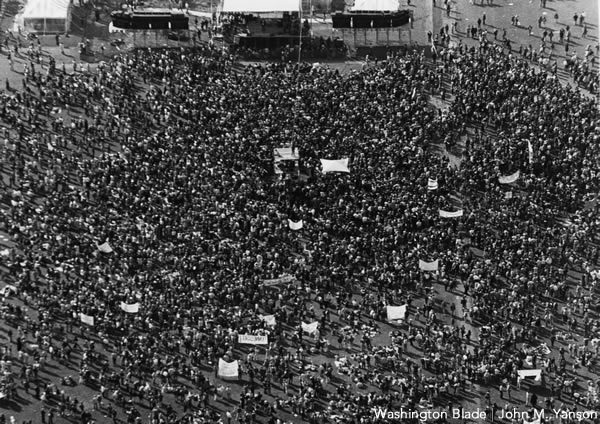
July 3, 1981:
The New York Times published an article on a “rare and often rapidly fatal form of cancer” that later become known as AIDS.
The AIDS epidemic has killed more than an estimated 600,000 people in the U.S. It also sparked activism that persists to this day, even though medications and access to treatment have allowed many people with HIV/AIDS to live longer lives.
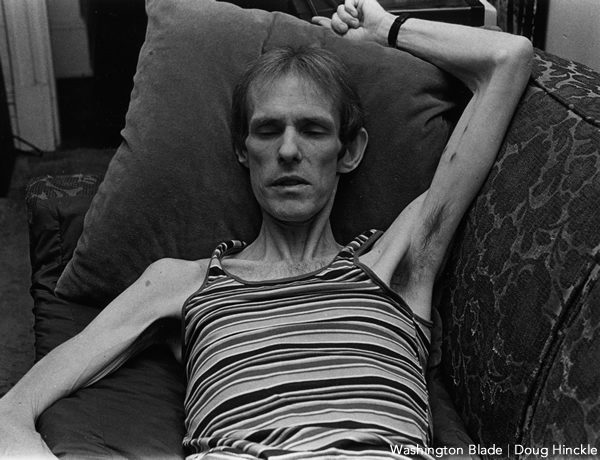
June 30, 1986:
The U.S. Supreme Court in a 5-4 ruling in Bowers v. Hardwick ruled the Constitution does not protect consensual same-sex sexual activity. The decision upheld a Georgia law that criminalized oral and anal sex among consenting adults.
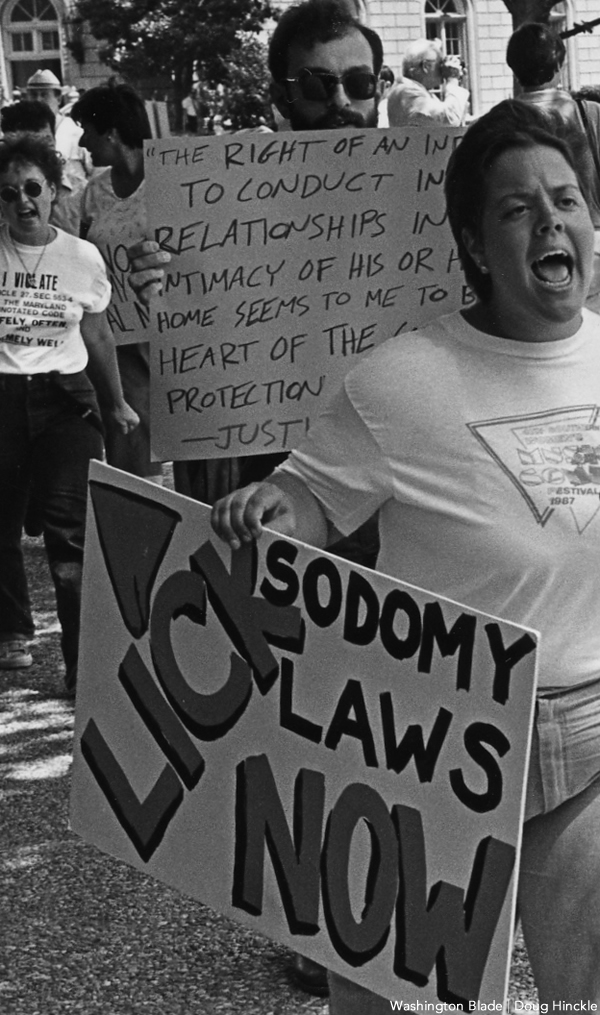
Sept. 20, 1996:
President Clinton signed the Defense of Marriage Act, which prevented the federal government from recognizing the marriages of same-sex couples that were legally performed.
Edith “Edie” Windsor challenged DOMA after she paid $363,000 in federal estate taxes when her wife passed away in 2009. The U.S. Supreme Court in 2013 found DOMA unconstitutional.
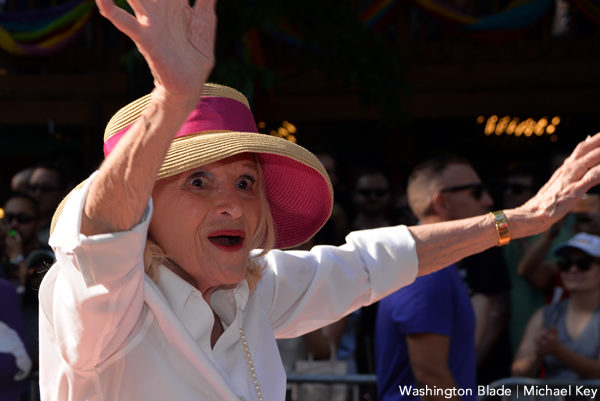
Oct. 12, 1998:
Matthew Shepard, a gay Wyoming college student, died after two men brutally beat him and left him tied to a fence.
Shepard’s death sparked outrage across the country. It also prompted his parents, Dennis and Judy Shepard, to become vocal LGBT activists through their work with the Matthew Shepard Foundation they created after their son’s murder.
President Obama in 2009 signed the Matthew Shepard and James Byrd Jr. Hate Crimes Prevention Act, which added sexual orientation and gender identity to the federal hate crimes law.
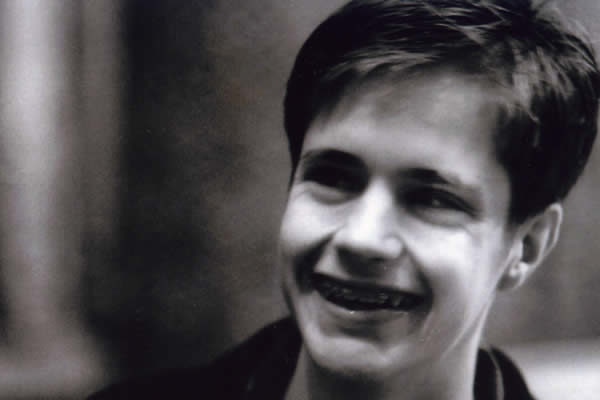
June 29, 1999:
James Hormel became the first openly gay U.S. ambassador.
President Clinton named Hormel to represent the U.S. in Luxembourg. More than half a dozen other openly gay men have been named ambassadors since 1999. These include current U.S. Ambassador to Germany Richard Grenell.
June 26, 2003:
The U.S. Supreme Court in a 6-3 ruling in Lawrence v. Texas ruled sodomy laws are unconstitutional.
Nov. 2, 2003:
New Hampshire Bishop V. Gene Robinson became the first openly gay bishop ordained by the Episcopal Church.
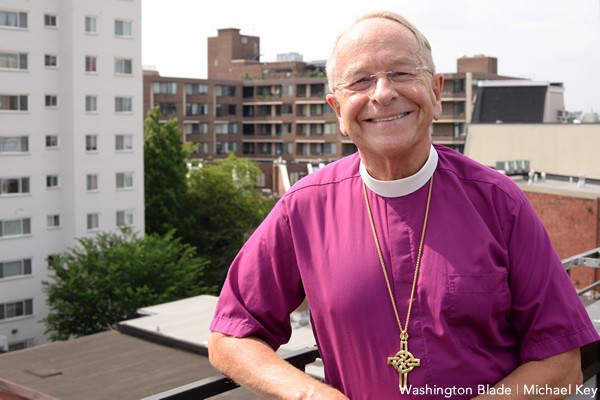
May 17, 2004:
Massachusetts became the first state in the U.S. to allow same-sex couples to legally marry.
Feb. 1, 2009:
Jóhanna Sigurðardóttir became the world’s first openly LGBT head of government when she was sworn in as Iceland’s prime minister.
Sigurðardóttir left office in 2013.
Irish Prime Minister Leo Varadkar and Luxembourgish Prime Minister Xavier Bettel are openly gay, while Serbian Prime Minister Ana Brnabić is a lesbian. Elio Di Rupo, who was Belgium’s prime minister from 2011-2014, is also openly gay.
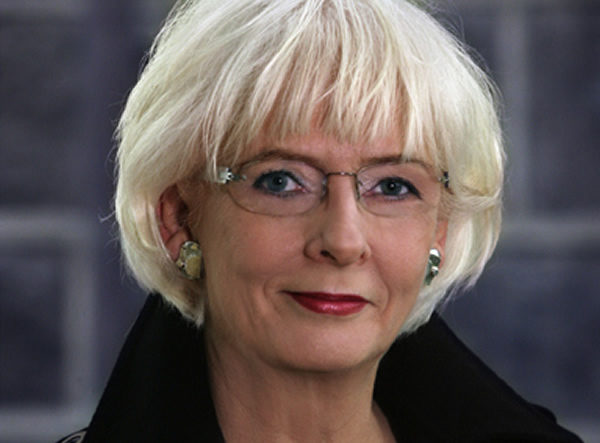
Sept. 20, 2011:
“Don’t Ask, Don’t Tell,” the law that prohibited openly gay people from serving in the U.S. military, was officially repealed.
“As of today, patriotic Americans in uniform will no longer have to lie about who they are in order to serve the country they love,” said then-President Obama. “As of today, our armed forces will no longer lose the extraordinary skills and combat experience of so many gay and lesbian service members.”
The Pentagon in 2016 announced it would no longer prohibit openly transgender people from the military. The Trump administration has reinstituted this ban.
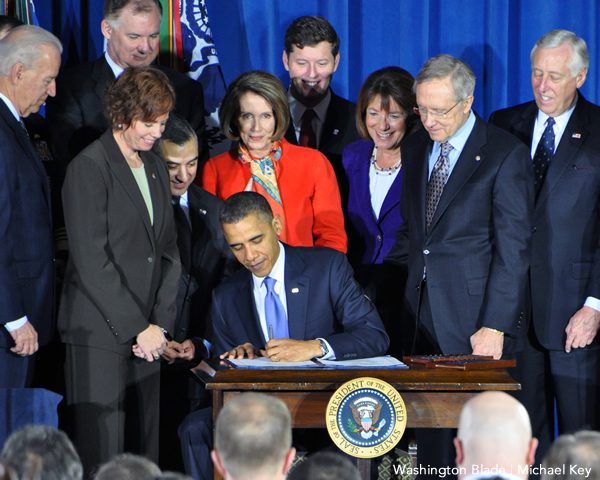
Nov. 6, 2012:
Tammy Baldwin became the first openly LGBT person elected to the U.S. Senate.
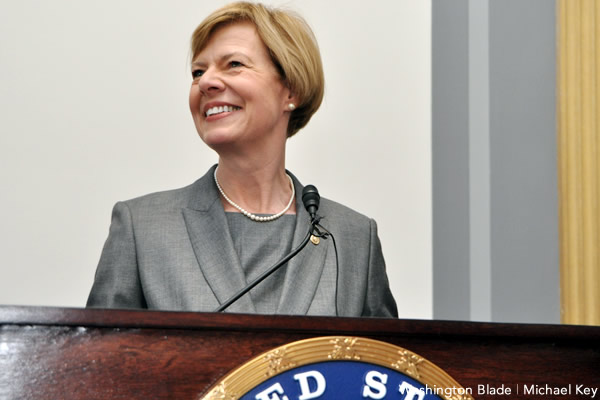
June 26, 2015:
The U.S. Supreme Court in a 5-4 ruling in Obergefell v. Hodges extended marriage rights to same-sex couples across the country.
James Obergefell, who was the lead plaintiff in the case, legally married his late-husband, John Arthur, on the tarmac of Baltimore-Washington International Thurgood Marshall Airport in 2013 after the Supreme Court struck down DOMA. The couple’s home state of Ohio did not legally recognize their wedding.
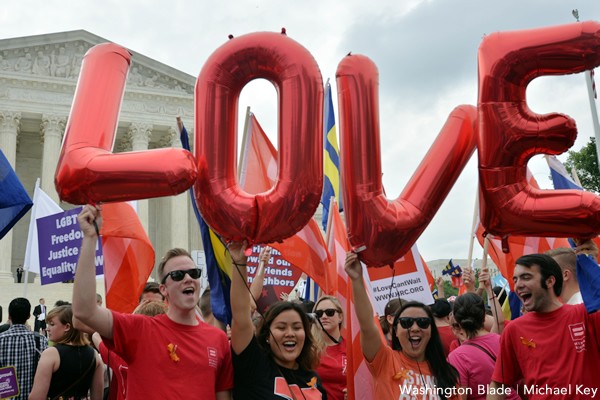
June 12, 2016:
A gunman killed 49 people inside Pulse, a gay nightclub in Orlando, Fla.
The massacre was the deadliest mass shooting in modern U.S. history until a gunman killed 58 people and injured more than 500 others at a Las Vegas concert on Oct. 1, 2017.
The Pulse nightclub massacre sparked renewed calls for gun control from LGBT rights advocates and their supporters. It also prompted President Trump, who was running for president, to renew his calls to temporarily ban Muslims from entering the U.S.
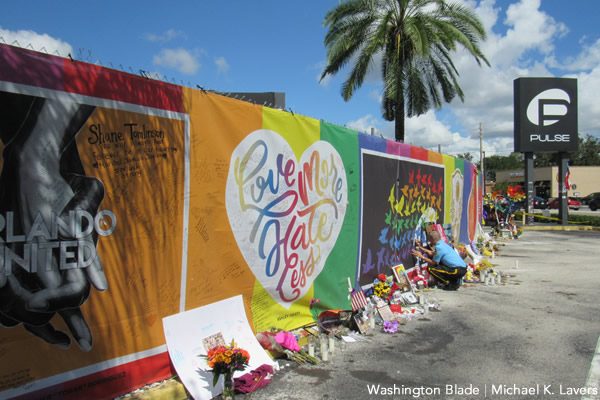
Nov. 7, 2017:
Danica Roem became the first openly transgender person elected to a state legislature in the U.S. when she defeated then-Virginia state Del. Bob Marshall (R-Prince William County), a vocal opponent of LGBT rights.
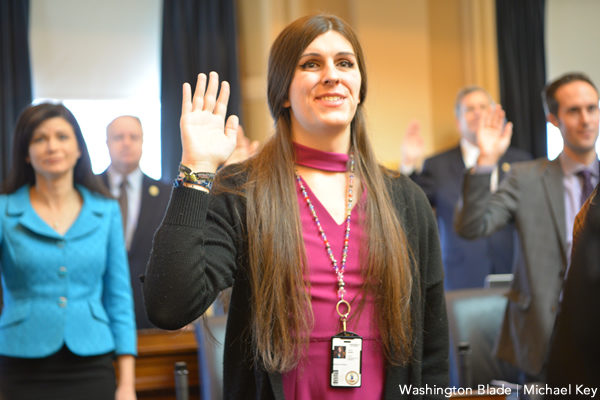
Nov. 6, 2018:
Colorado Gov. Jared Polis became the first out person elected governor of a U.S. state.
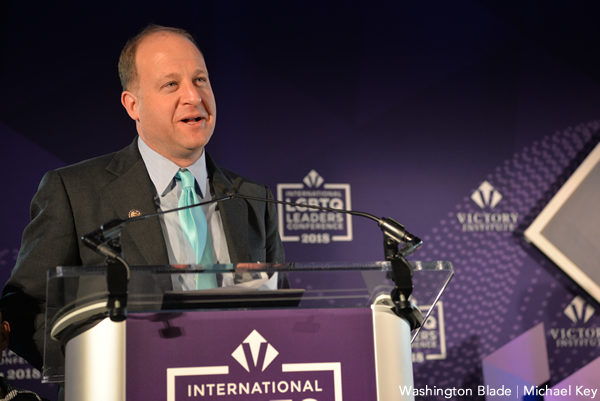
Theater
Voiceless ‘Antony & Cleopatra’ a spectacle of operatic proportions
Synetic production pulls audience into grips of doomed lovers’ passion
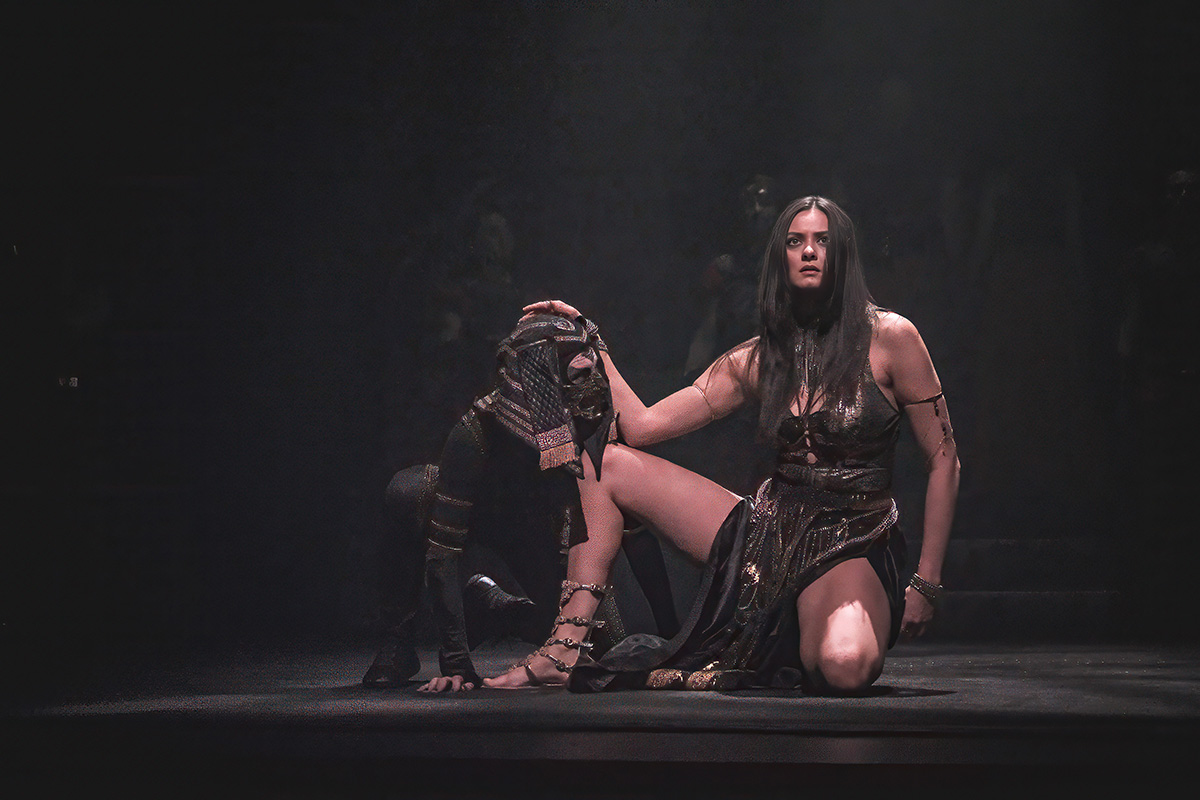
‘Antony & Cleopatra’
Through Jan. 25
Synetic Theater at
Shakespeare Theatre Company’s Klein Theatre
450 7th St., N.W.
Synetictheater.org
A spectacle of operatic proportions, Synetic Theater’s “Antony & Cleopatra” is performed entirely voiceless. An adaptation of the Bard’s original (a play bursting with wordplay, metaphors, and poetic language), the celebrated company’s production doesn’t flinch before the challenge.
Staged by Paata Tsikurishvili and choreographed by Irina Tsikurishvili, this worthy remount is currently playing at Shakespeare Theatre Company’s Klein Theatre, the same venue where it premiered 10 years ago. Much is changed, including players, but the usual inimitable Synectic energy and ingenuity remain intact.
As audiences file into the Klein, they’re met with a monumental pyramid bathed in mist on a dimly lit stage. As the lights rise, the struggle kicks off: Cleopatra (Irina Kavsadze) and brother Ptolemy (Natan-Maël Gray) are each vying for the crown of Egypt. Alas, he wins and she’s banished from Alexandria along with her ethereal black-clad sidekick Mardian (Stella Bunch); but as history tells us, Cleopatra soon makes a triumphant return rolled in a carpet.
Meanwhile, in the increasingly dangerous Rome, Caesar (memorably played by Tony Amante) is assassinated by a group of senators. Here, his legendary Ides of March murder is rather elegantly achieved by silver masked politicians, leaving the epic storytelling to focus on the titular lovers.
The fabled couple is intense. As the Roman general Antony, Vato Tsikurishvili comes across as equal parts warrior, careerist, and beguiled lover. And despite a dose of earthiness, it’s clear that Kavsadze’s Cleopatra was born to be queen.
Phil Charlwood’s scenic design along with Colin K. Bills’ lighting cleverly morph the huge pyramidic structure into the throne of Egypt, the Roman Senate, and most astonishingly as a battle galley crashing across the seas with Tsikurishvili’s Antony ferociously at the helm.
There are some less subtle suggestions of location and empire building in the form of outsized cardboard puzzle pieces depicting the Mediterranean and a royal throne broken into jagged halves, and the back-and-forth of missives.
Of course, going wordless has its challenges. Kindly, Synectic provides a compact synopsis of the story. I’d recommend coming early and studying that page. With changing locations, lots of who’s who, shifting alliances, numerous war skirmishes, and lack of dialogue, it helps to get a jump on plot and characters.
Erik Teague’s terrific costume design is not only inspired but also helpful. Crimson red, silver, and white say Rome; while all things Egyptian have a more exotic look with lots of gold and diaphanous veils, etc.
When Synetic’s voicelessness works, it’s masterful. Many hands create the magic: There’s the direction, choreography, design, and the outrageously committed, sinewy built players who bring it to life through movement, some acrobatics, and the remarkable sword dancing using (actual sparking sabers) while twirling to original music composed by Konstantine Lortkipanidze.
Amid the tumultuous relationships and frequent battling (fight choreography compliments of Ben Cunis), moments of whimsy and humor aren’t unwelcome. Ptolemy has a few clownish bits as Cleopatra’s lesser sibling. And Antony’s powerful rival Octavian (ageless out actor Philip Fletcher) engages in peppy propaganda featuring a faux Cleopatra (played by Maryam Najafzada) as a less than virtuous queen enthusiastically engaged in an all-out sex romp.
When Antony and Cleopatra reach their respective ends with sword and adder, it comes almost as a relief. They’ve been through so much. And from start to finish, without uttering a word, Kavsadze and Tsikurishvili share a chemistry that pulls the audience into the grips of the doomed lovers’ palpable passion.
Out & About
Love board games and looking for love?
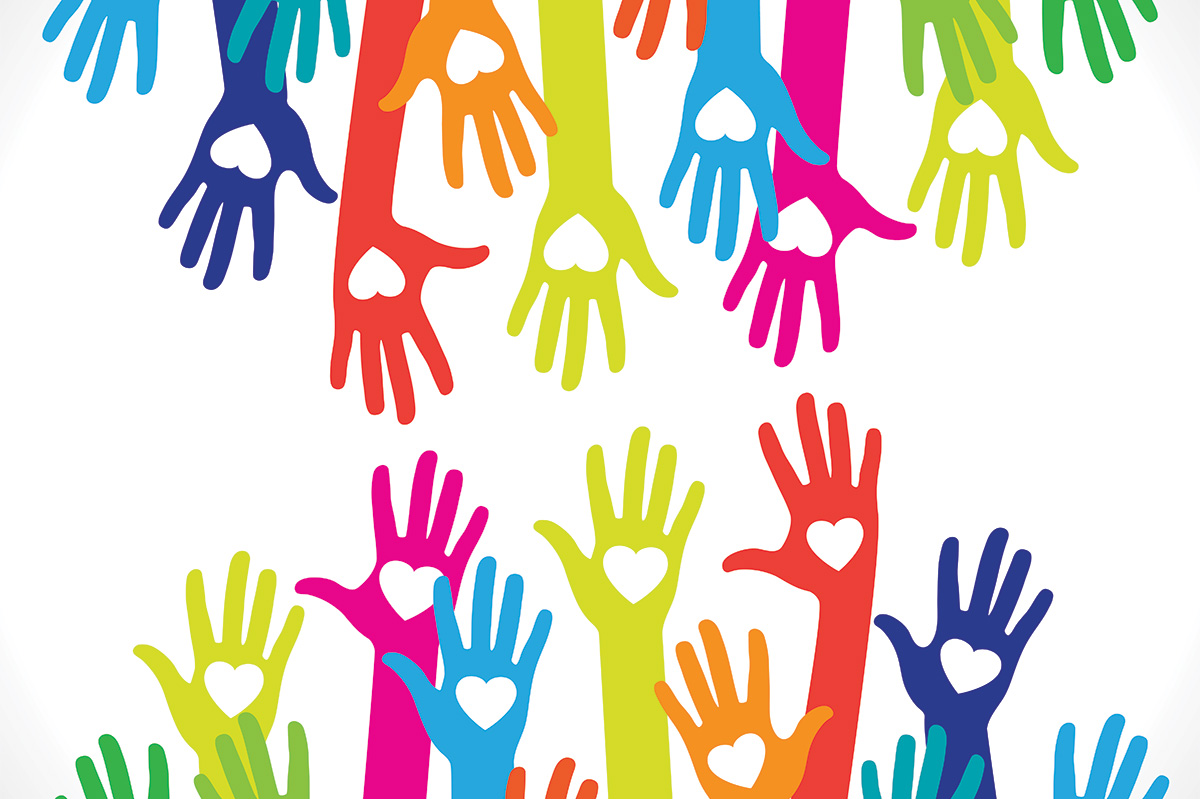
Quirk Events will host “Board Game Speed Dating for Gay Men” on Thursday, Jan. 22 at 7 p.m. at KBird DC.
Searching for a partner can be challenging. But board games are always fun. So what if you combined board games and finding a partner?
Picture this: You sit down for a night of games. A gaming concierge walks you through several games over the course of the night. You play classics you love and discover brand new games you’ve never heard of, playing each with a different group of fun singles. All while in a great establishment.
At the end of the night, you give your gaming concierge a list of the folks you met that you’d like to date and a list of those you met that you’d like to just hang out with as friends. If any two people put down the same name as each other in either column, then your gaming concierge will make sure you get each other’s e-mail address and you can coordinate a time to hang out.
Tickets cost $31.80 and can be purchased on Eventbrite.

Friday, January 16
Friday Tea Time will be at 12 p.m. at the DC Center for the LGBT Community. This is a social hour for older LGBTQ+ adults. Bring your beverage of choice. For more information, contact Mac ([email protected]).
Trans and Genderqueer Game Night will be at 7 p.m. at the DC LGBTQ+ Community Center. This is a relaxing, laid-back evening of games and fun. For more details, visit the DC Center’s website.
Go Gay DC will host “LGBTQ+ Social in the City” at 7 p.m. at Hotel Zena. This event is ideal for making new connections and community building or just to unwind and enjoy extended happy hour. Attendance is free and more details are available on Eventbrite.
Saturday, January 17
Go Gay DC will host “LGBTQ+ Community Brunch” at 11 a.m. at Freddie’s Beach Bar & Restaurant. This fun weekly event brings the DMV area LGBTQ+ community, including allies, together for delicious food and conversation. Attendance is free and more details are available on Eventbrite.
The DC LGBTQ+ Community Center and SMYAL will host a free film screening of “Mama Bears” celebrating queer youth, resilience, and the power of living authentically. Whether you’re a movie lover, looking to make new friends, or simply want a safe, affirming space to relax, this event is for you. Click this link to RSVP.
LGBTQ People of Color will be at 7 p.m. on Zoom. This peer support group is an outlet for LGBTQ people of color to come together and talk about anything affecting them in a space that strives to be safe and judgement free. There will be all sorts of activities like watching movies, poetry events, storytelling, and just hanging out with others. For more details, visit thedccenter.org/poc or facebook.com/centerpoc.
Sunday, January 18
Go Gay DC will host “LGBTQ+ Community and Conversation” at noon at As You Are. This event is for those looking to make more friends and meaningful connections in the LGBTQ+ community. Look for the Go Gay DC sign on the long table near the front window. Attendance is free and more details are available on Eventbrite.
Monday, January 19
“Center Aging: Monday Coffee Klatch” will be at 10 a.m. on Zoom. This is a social hour for older LGBTQ adults. Guests are encouraged to bring a beverage of choice. For more information, contact Adam ([email protected]).
Tuesday, January 20
Center Bi+ Roundtable will be at 7 p.m. on Zoom. This is an opportunity for people to gather in order to discuss issues related to bisexuality or as Bi individuals in a private setting.Visit Facebook or Meetup for more information.
Tae Kwon Do Class with Avi Rome will be at 12:30 p.m. This inclusive and beginner-friendly class, led by Instructor Avi Rome, offers a light warm-up, stretching, and instruction in basic techniques, patterns, and striking padded targets. Each session is designed to be adaptable for all ability and mobility levels, creating a welcoming space for everyone to build strength, confidence, and community through martial arts. For more details, visit the DC Center’s website.
Wednesday, January 21
Job Club will be at 6 p.m. on Zoom upon request. This is a weekly job support program to help job entrants and seekers, including the long-term unemployed, improve self-confidence, motivation, resilience and productivity for effective job searches and networking — allowing participants to move away from being merely “applicants” toward being “candidates.” For more information, email [email protected] or visit thedccenter.org/careers.
Thursday, January 22
The DC Center’s Fresh Produce Program will be held all day at the DC Center for the LGBT Community. People will be informed on Wednesday at 5 p.m. if they are picked to receive a produce box. No proof of residency or income is required. For more information, email [email protected] or call 202-682-2245.
Virtual Yoga Class will be at 7 p.m. on Zoom. This free weekly class is a combination of yoga, breathwork and meditation that allows LGBTQ+ community members to continue their healing journey with somatic and mindfulness practices. For more details, visit the DC Center’s website.
-

 District of Columbia5 days ago
District of Columbia5 days agoRuby Corado sentenced to 33 months in prison
-

 Virginia4 days ago
Virginia4 days agoMark Levine loses race to succeed Adam Ebbin in ‘firehouse’ Democratic primary
-

 Iran4 days ago
Iran4 days agoGrenell: ‘Real hope’ for gay rights in Iran as result of nationwide protests
-

 Congress4 days ago
Congress4 days agoVan Hollen speaks at ‘ICE Out for Good’ protest in D.C.

















